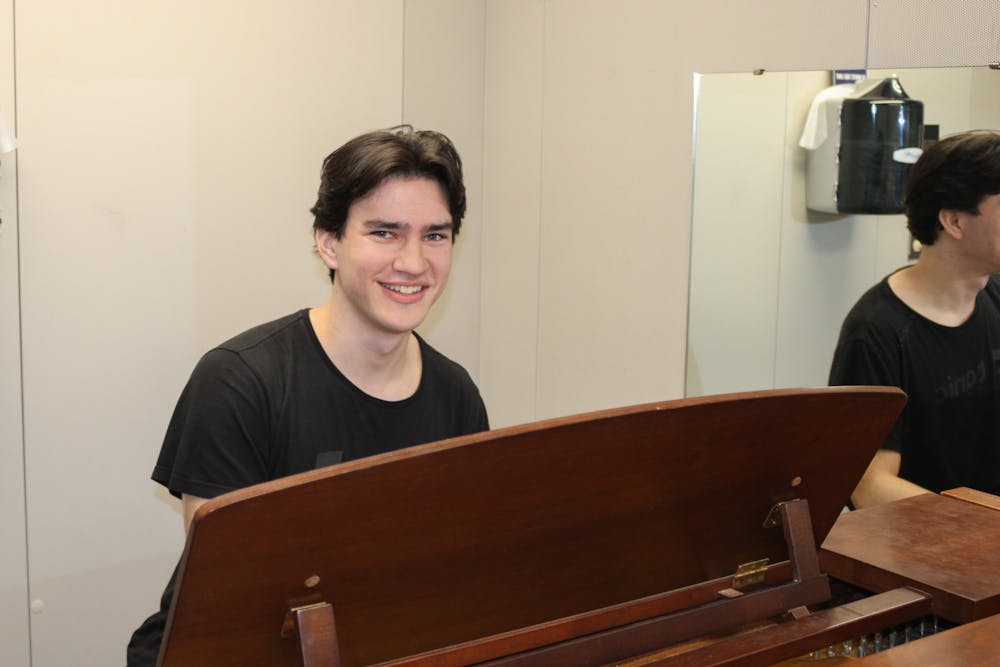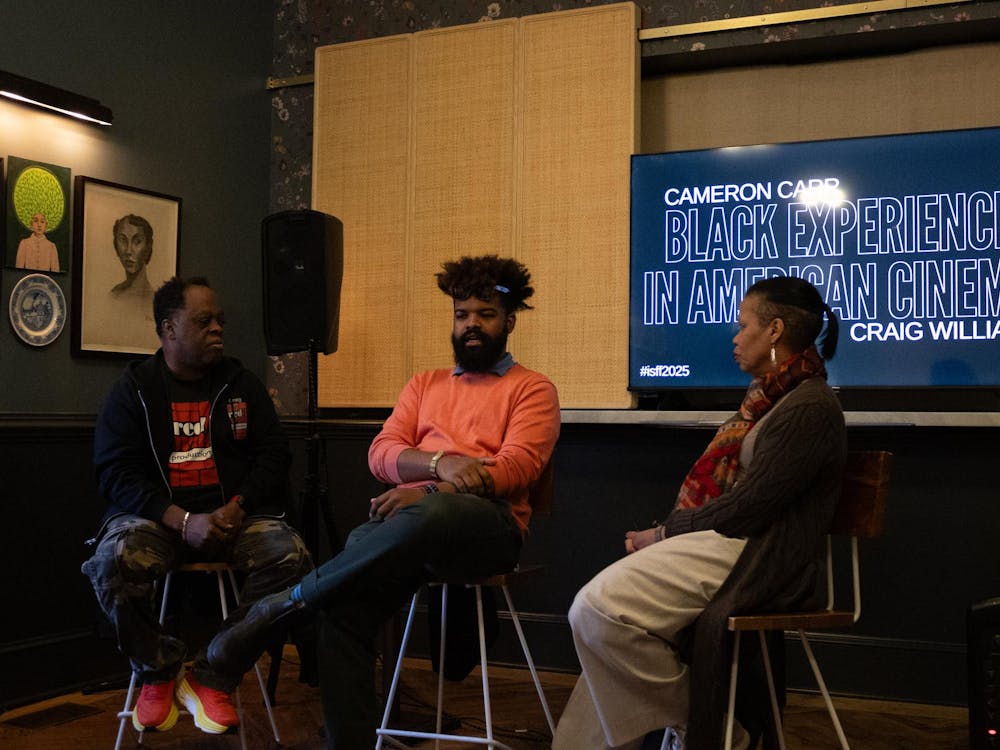Enter Old Cabell Hall. Grab a practice module key. Walk downstairs, unlock the module and begin practicing. For University musicians like fourth-year College student Piergiorgio Wilson, this routine is muscle memory.
While practice is critical to every musician’s process, it neglects an equally essential element of the artistic experience — community. Wilson recognizes this shortcoming. Through projects like his YouTube channel and his role as community advocate for the Tonic app, Wilson inspires musical connection, cultivating communities of artists eager to celebrate music alongside each other.
In September of 2021, Wilson created a YouTube channel to share his enthusiasm for classical piano music. Today, his channel boasts over 15,000 subscribers and nearly a dozen videos with more than 100,000 views. Wilson’s videos include witty music edits, reactions to notable piano performances and discussions about the classical music industry.
His most successful video — titled “Yuja Wang being Yuja Wang for 2 minutes and 41 seconds straight” — amassed nearly 650,000 views and features a compilation of playful clips of the renowned pianist. Regardless of its success, Wilson’s efforts towards his YouTube channel are driven principally by a desire to connect people through music — to foster community.
“I make videos that I think connect to anyone of any age, and whether you're a classical musician or not, I think I provide something that's entertaining to everyone,” Wilson said. “That's what I care about most, is still enjoying the fun that comes with making [videos] and making other people's days.”
Wilson’s YouTube channel is not where his community-building efforts stop, however. Much of his time is devoted to serving as community advocate for an app called Tonic Music. Founded by acclaimed violinist Ray Chen, the app’s mission is to connect music enthusiasts and address the lack of community Chen observed.
In a blog post on the Tonic website, Chen noted that making music can be an isolating experience, especially for those early in their journeys. Important components of the musical process — particularly practicing and taking lessons — are individualistic in nature, which can demotivate growing musicians.
Tonic’s features include in-app music challenges, a practice tracker and social groups for specific musical interests — it is, as Wilson describes, a “one-stop shop” for musicians of all levels.
“If you're somebody who's just been playing the violin for two years or you're a seasoned professional, there's something that you can take from being on our platform,” Wilson said.
The centerpiece of the app is the Studios feature, which enables users to rehearse in front of a live audience. With the tool, musicians host virtual practice rooms and perform for other users, who have the ability to provide real-time feedback. According to Wilson, Studios offer both social value through community engagement as well as practical value by helping musicians become more comfortable with live performance.
“There's a very big difference between practicing when you're comfortable and practicing for performance,” Wilson said. “The moment you step out on stage, and you're wearing your suit or your dress, you're not ready to perform for whether it's 50 people or 500 people…Simulating a real-life performance is a huge benefit you can obtain through the app.”
As community advocate, Wilson’s roles range from communicating with companies and esteemed musicians regarding in-app events to collaborating with other teams within Tonic on new features.
Just as with his YouTube channel, what urged him to join and what compels him to return is the project’s vision for community. For Wilson, Tonic’s value of musical connection makes it the resource he wishes he had as a growing artist.
“Being able to hop on your phone, get into an app and find other people who play the same instrument as you or share the same interests…that's a large part of what makes the platform so special,” Wilson said. “It's an app that I always wanted when I was younger, and to be a part of the team and make it happen is a dream come true.”
Poet Henry Wadsworth Longfellow once described music as the universal language of humanity. But for many musicians today — especially those just beginning to learn — finding companions to speak this language with poses a significant barrier.
Wilson’s work represents a path towards greater musical connection — it is only by having the courage to seek out those with similar interests that artists of all types can once again engage in the beautiful conversation of music.
“Once you realize that there are people that have the same interest as you, it can make your journey as a musician so much more enjoyable,” Wilson said. “I think there's a lot of comfort in knowing that there are people who are just like you that love to bond over music.”
For a captivating reaction to Sergei Rachmaninoff’s Piano Concerto No. 3, an amusing skit about ordering sheet music online and other creative videos on classical piano music, check out Wilson’s YouTube channel @PiergiorgioWilson.







